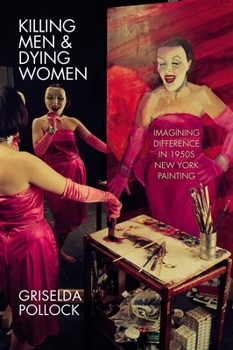Killing Men & Dying Women: Imagining Difference in 1950s New York Painting
Select Format
Select Condition 
Book Overview
What did it mean for painter Lee Krasner to be an artist and a woman if, in the culture of 1950s New York, to be an artist was to be Jackson Pollock and to be a woman was to be Marilyn Monroe?
With this question, Griselda Pollock begins a transdisciplinary journey across the gendered aesthetics and the politics of difference in New York abstract, gestural painting. Revisiting recent exhibitions of Abstract Expressionism that either marginalised the artist-women in the movement or focused solely on the excluded women, as well as exhibitions of women in abstraction, Pollock reveals how theories of embodiment, the gesture, hysteria and subjectivity can deepen our understanding of this moment in the history of painting co-created by women and men. Providing close readings of key paintings by Lee Krasner and re-thinking her own historic examination of images of Jackson Pollock and Helen Frankenthaler at work, Pollock builds a cultural bridge between the New York artist-women and their other, Marilyn Monroe, a creative actor whose physically anguished but sexually appropriated star body is presented as pathos formula of life energy. Monroe emerges as a haunting presence within this moment of New York modernism, eroding the policed boundaries between high and popular culture and explaining what we gain by re-thinking art with the richness of feminist thought.Format:Hardcover
Language:English
ISBN:1526164175
ISBN13:9781526164179
Release Date:July 2022
Publisher:Manchester University Press
Length:320 Pages
Weight:1.85 lbs.
Dimensions:0.9" x 6.1" x 9.3"
Customer Reviews
0 rating





